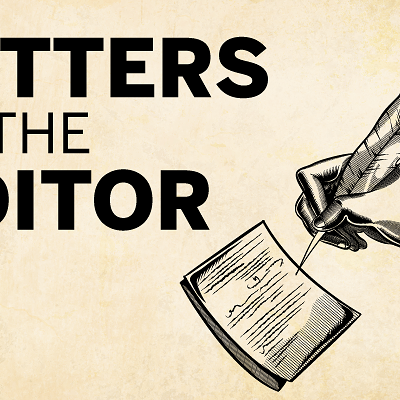To the editor,
Although I do not normally respond to things said about me in the media, I feel compelled to inform your readers that in two recent articles by Tim Bousquet that appeared in The Coast May 29 and June 26, comments he attributed to me were inaccurate, and he erroneously reported and misrepresented my position on tax relief for lower income property owners.
During its February meetings, the HRM tax reform committee examined numerous options for an enhanced municipal tax rebate program. As a member of that committee, I stated the proposed tax system was primarily service-based, and I was concerned that the options being discussed provided too much tax relief; hence eroding the value of a service-based tax. Moreover, these options provided significant relief to not only low-income property owners, but to individuals in the middle-income ranges as well. In addition, it was proposed that extra tax relief be provided for those with children. It is my personal belief that those in the lower-income levels should receive some sort of municipal tax relief, but I told the committee that I felt the options being discussed were moving HRM outside its municipal mandate, and into the jurisdiction of the province. Social policy is the responsibility of the province, and it is they who have the mandate and the expertise to deal with these issues. Despite what was reported in The Coast, I was not, and am not, against tax relief for lower-income families. In fact, I suggested staff examine the financial impact of raising the current $25,000 household income level for tax relief to $40,000.
If your reporter took the time to check into my background, he would have found that I left a teaching career in the mid '70s to manage low-income housing programs in rural Cape Breton for seven years. Following that, I was the program officer for Baffin Island for low-income home construction and public housing for three years, and for the next seven years, I was managing low-income rental housing for natives in urban centres throughout Nova Scotia. I have done, and will continue to do, my part to assist more low-income families purchase homes and be able to remain in their homes. I spent nearly 20 years of my life working in social housing and I support assistance for those in need, including municipal property tax relief.
As far as the author's assigned grade for me as a Halifax Regional councillor, that does not concern me. What is important for me is the grade I work for every day, and the one I receive from the residents of my community of Timberlea-Prospect.
Tim Bousquet responds: Reg Rankin and I have different accounts of what he said at the committee meeting. That's because he said conflicting things through the course of the meeting. (I've posted a recording of the meeting at thecoast.ca/bites.) I'll accept his clarification about relief for poor people.
But let's look at what will happen if the proposed changes are implemented. As one city document outlined, 14 percent of property owners with incomes above $100,000 will pay less in tax, while just four percent will pay more. The effect will be especially pronounced in the south end: Nearly every one of the $1 million-plus houses on Young Avenue will be taxed less by $3,000 and more a year. Who's going to make up the difference? Not poor people---if the proposed relief program is implemented, 15 percent of those making less than $30,000 will pay less tax, with one percent paying more. Rather, middle-class people will pay more to make up for the tax cuts for the rich: 22 percent of property owners making between $30,000 and $60,000 will pay more (half as many will pay less).
The financial hit on middle-income homeowners will be entirely the result of HRM's changes, and has nothing to do with the province. Rankin can't have it both ways---he wants HRM to take over the provincial authority for setting municipal tax rates (indeed, it's the entire point of the tax reform committee), but he says that where tax relief is concerned, "the options being discussed were moving HRM outside its municipal mandate and into the jurisdiction of the province."
In other words, the province should clean up HRM's mess. Where should the province find the money? Cutting health budgets?
It's nice that Rankin did some work with low-income people 30 years ago. He shouldn't ruin that legacy by sticking it to middle-income people today.
By ---Reg Rankin, councillor, District 22 (Timberlea-Prospect)














